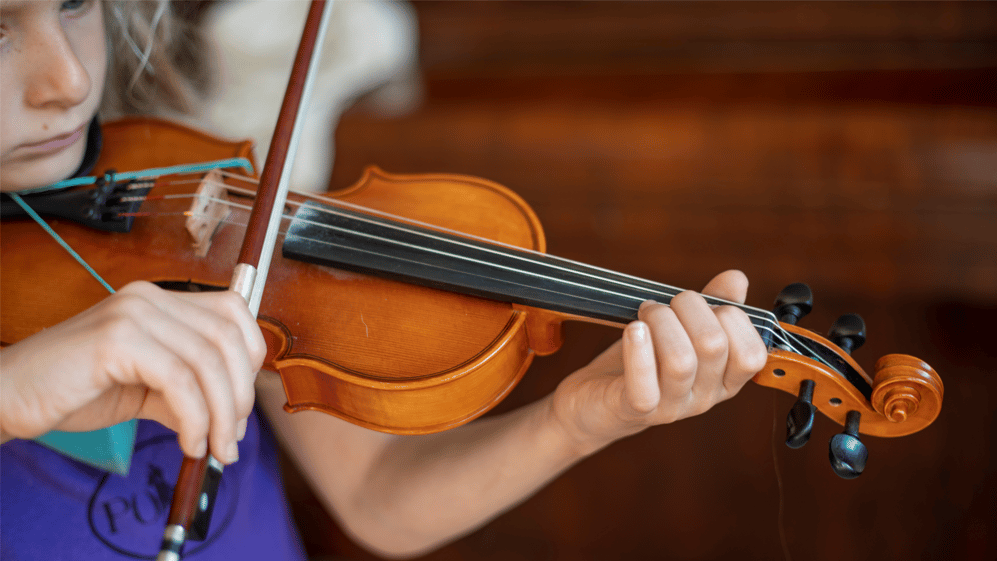The ancient Greeks recognized the importance of music as part of a complete education. In the Greek gymnasiums of ancient times, men sought physical fitness through training, but education in music was also essential. Greek philosophers argued that music was important because it refined the mind. Gymnastics (or physical training) and music together completed a man’s education.
Music Forms the Mind, Body, and Heart
I think there is an argument to be made that a musical education forms the mind, body, and heart of a student. After all, to learn music, a student must develop some academic prowess. He must know his letters and his numbers and learn note values and fingerings. His mind must be engaged whether he is reading sheet music or playing by ear.
Music is also an active pursuit involving the entire body. Musicians must focus on breathing and the movement of their arms, hands, fingers, legs, and feet. It also demands endurance, as concerts or church services often last an hour or longer. During this time, the musician must always be engaged both mentally and physically. An unfit or unhealthy musician would find it extremely difficult to last for that whole period.
Finally, playing music forms the heart, the seat of emotion. When learning a piece of music, a musician must not only have intelligence and physical fitness, but he must also be able to play with emotion. The emotion shown in music must be the right amount, though. Too little emotion and a piece becomes dull and mechanical. Too much emotion and a piece becomes sentimental and schmaltzy. Learning music requires that a student find the perfect middle ground.
Music Helps Form Proper Emotion
While it takes both intelligence and physical fitness to perform music, the sign of a great musician is performing music with the proper amount of emotion. In turn, this facet of musical education teaches a student to display the proper emotion in life. This proper emotion guides a student to treat things the way they should be treated. He learns to weep at death, laugh at humor, and delight in joy. Beyond this, he learns to weep neither too little nor too much, to laugh at truly humorous things, and to be contentedly joyful.
Church musicians can take this emotional education and apply it to their weekly service-playing. The music we play at church has an important role in the service. The texts of the hymns, psalms, liturgy, anthems, and songs reinforce the message of salvation we hear every Sunday. The style in which we play them gives the congregation a sense of the proper emotional response. A skilled musician who himself has learned how to properly present emotion in music can then subtly guide his listeners to properly present emotion in the service.
Music Is Essential to Education
In all this talk of music as an emotional teacher, we see how music is deeply human. For this emotion and this humanity, it is critical that we continue to listen to, perform, and teach this art. Like the ancient Greeks, let us see it as an essential part of a complete education!
Use One and All Rejoice to continue teaching hymns, psalms, and liturgy to your students.










.jpg?width=50&height=50&name=IMG_20220621_160541_456%20(1).jpg)


